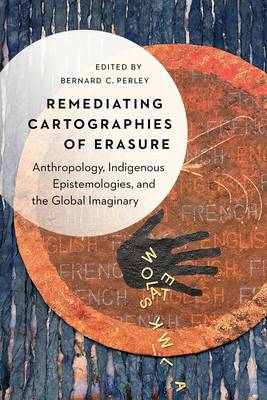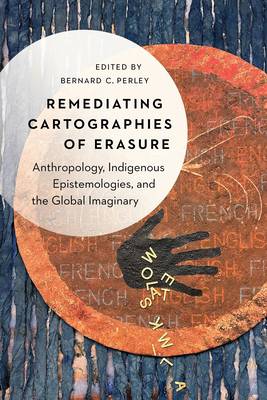
- Retrait gratuit dans votre magasin Club
- 7.000.000 titres dans notre catalogue
- Payer en toute sécurité
- Toujours un magasin près de chez vous
- Retrait gratuit dans votre magasin Club
- 7.000.0000 titres dans notre catalogue
- Payer en toute sécurité
- Toujours un magasin près de chez vous
Remediating Cartographies of Erasure
Anthropology, Indigenous Epistemologies, and the Global Imaginary
Bernard C PerleyDescription
Remediating Cartographies of Erasure brings together leading sociocultural and linguistic anthropologists to explore the moral imperatives of anthropology as a discipline to contribute to the self-determination and equality of Indigenous peoples around the globe. This engaged collaboration highlights the partnerships between Indigenous communities and anthropology as a mutually respectful and emancipatory practice of Indigenous and anthropological epistemologies.
Indigenous scholars from New Zealand, the United States, and Canada and non-Indigenous scholars from Australia, the United States, and Canada each provide concrete examples of how researchers actualize the moral imperative to work with Indigenous peoples in ways that foster their human rights and self-determination. The contributors discuss anthropological work done in Canada, the United States, Brazil, Peru, Bolivia, Honduras, Australia, Sardinia, and New Zealand.
In laying out a world anthropology, this volume demonstrates the rectification practices of Indigenous peoples and continues anthropology's long-standing advocacy for social justice and human rights around the globe.
Bernard C. Perley (Tobique Maliseet) is a professor and the director of the Institute for Critical Indigenous Studies at the University of British Columbia, Vancouver. He is the author of Defying Maliseet Language Death: Emergent Vitalities of Language, Culture, and Identity in Eastern Canada (Nebraska, 2011) and a coeditor of Anthropological Theory for the Twenty-First Century: A Critical Approach and Language and Social Justice: Global Perspectives.
Spécifications
Parties prenantes
- Auteur(s) :
- Editeur:
Contenu
- Nombre de pages :
- 280
- Langue:
- Anglais
Caractéristiques
- EAN:
- 9781496243409
- Date de parution :
- 01-08-25
- Format:
- Livre relié
- Format numérique:
- Genaaid
- Dimensions :
- 152 mm x 229 mm
- Poids :
- 544 g

Les avis
Nous publions uniquement les avis qui respectent les conditions requises. Consultez nos conditions pour les avis.






